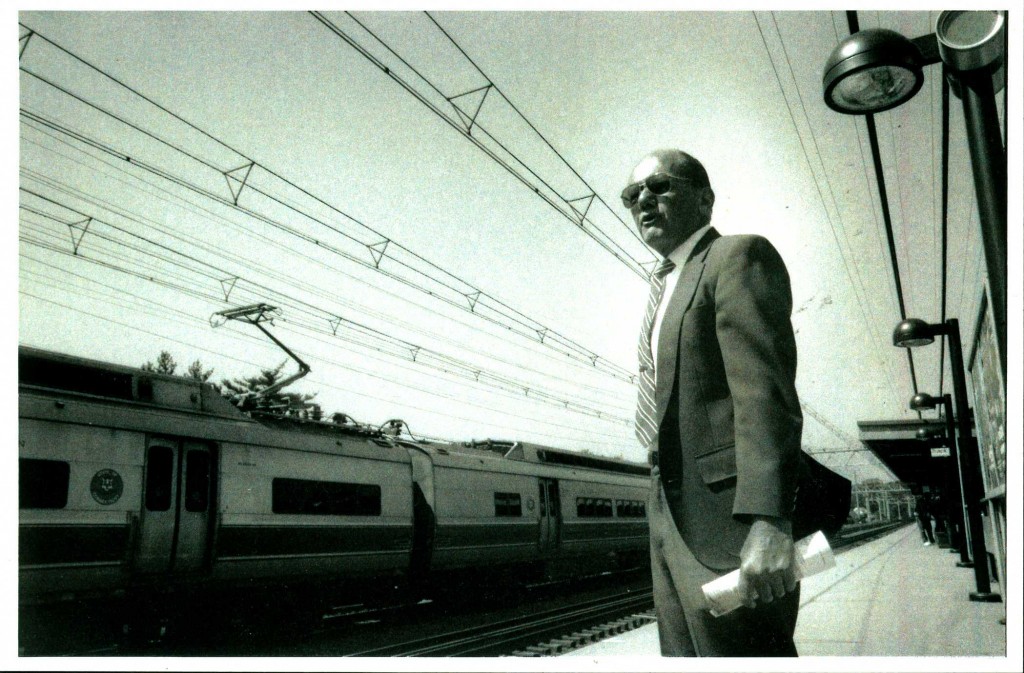Whether contending in the 1990s with the many issues facing the safe and punctual operation of Connecticut’s heavily used Metro-North commuter rail service in New Haven, writing a definitive history of the New Haven Railroad – a volume coveted by historians and collectors alike – or traveling aboard classic steam trains in exotic locations, J. W. “Jack” Swanberg has done it all.
He recalls a 1994 British charter trip into Pakistan’s Khyber Pass, almost to the Afghan border, as being particularly memorable. “Using British-built steam locomotives, we had a carload of Pakistani Army soldiers with us for security, although even they would not let us stop the train in areas that they deemed unsafe. Not a luxury train at all, but the mountain scenery was fantastic. Our base of operations was Peshawar, a Bin Laden stronghold where you certainly wouldn’t go today.”
Clearly an adventurer, Swanberg’s love of trains took hold when he was a toddler. During his life, he has indulged that early fascination by taking rail trips throughout the world, while simultaneously enjoying a 38-year career in railroad management. He began as a locomotive fireman shortly after his graduation from Hartford’s Trinity College, and ended as Lead Trainmaster for Metro-North in 2000.
Since 2000, the Guilford, Connecticut resident has shared his time, energy, and expertise with Laura Smith, curator of UConn’s Railroad History Archive. He recently bequeathed his rich collection to the Archive, which is being digitally scanned to catalogue and preserve it.
“Jack’s collection is extraordinary and comprehensive, most particularly to the history of the New Haven Railroad and of railroads in New England, but more generally in showing the impact and importance of trains and train travel in the United States,” Smith says. “It is no exaggeration to say that Jack’s collection reminds us of the importance of the railroad in the making of America.”
Railroads aren’t the only thing firmly within Swanberg’s grasp. He is knowledgeable about the defense of our country following four years of active service in U.S. Naval Aviation as an aerial transport navigator. He flew scores of missions worldwide, including many into Vietnam, and served another 25 years in the Reserve, retiring as a Captain.
Author of not only the notable New Haven Power, 1838-1968: Steam, Diesel, Electric, MU’s, Trolleys, Motor Cars, Buses & Boats, a history of the locomotives and motive equipment of the New Haven Railroad, published in 1988, the research for which is included in the donation, Swanberg continues to share his knowledge and insights with readers of Railroad History (a publication of the Railway and Locomotive Historical Society), Shoreliner
(a publication of the New Haven Railroad Historical and Technical Association), and other railroad history and enthusiast publications. Many photographs that he has taken and collected over his career with the railroad have been widely published, many by other railroad history authors.
Swanberg explains the rationale for his largesse this way: “Typically when a collector dies, his or her collection of photos, records, etc. goes to a dealer and is scattered by being sold off piecemeal, thus mostly becoming unavailable to future researchers,” he says.
“I’ve been collecting and accumulating photos going back into the 1800s for over 50 years myself, plus taking my own photos for just as long, plus collecting voluminous historical records. All of this is now consolidated, so why should it be scattered once again? I know that UConn will archivally preserve my collection and will make it available to researchers indefinitely.
Current authors, myself included, refer frequently to such collections, and I appreciate having my own collection being available for such research in the future.”
A regular visitor to the Railroad History Archive, Swanberg has applied his knowledge and helped Smith organize and describe materials in the collection, particularly photographs of New Haven Railroad steam and electric locomotive that were placed online in an early digital project.
“The UConn Libraries has benefited tremendously from our relationship with Jack, and we are honored to preserve his legacy as a historian, collector and creator of railroad history,” Smith added.

